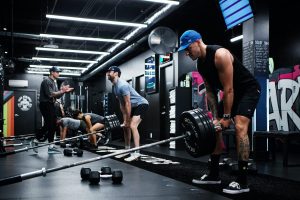Whether you’re training for a marathon, preparing for a big game, or simply looking to enhance your daily workouts, nutrition plays a pivotal role in your athletic performance. Fueling your body with the right nutrients not only boosts your energy but also aids in recovery and reduces the risk of injury. Here are ten essential nutrition tips to help you perform at your best.
1. Prioritize Protein
Protein is the building block of muscles. Consuming adequate amounts of lean protein such as chicken, fish, eggs, beans, and nuts helps repair muscle tissues and supports muscle growth. Aim to include a source of protein in every meal and snack, especially post-workout to speed up recovery.
2. Stay Hydrated
Hydration is key to maintaining peak performance. Dehydration can lead to fatigue, cramps, and a decrease in coordination. Drink plenty of water throughout the day, and consider sports drinks with electrolytes during prolonged or intense exercise to replenish lost minerals.
3. Embrace Complex Carbohydrates
Carbohydrates are your body’s primary energy source during exercise. Opt for complex carbs like whole grains, oats, brown rice, and sweet potatoes, which provide a steady release of energy. These carbs are also rich in fiber, helping you feel fuller for longer and aiding digestion.
4. Don’t Skip Breakfast
Breakfast is crucial for kick-starting your metabolism and providing energy for morning workouts. A balanced breakfast with a mix of carbs, protein, and healthy fats can set the tone for the rest of the day. Think oatmeal with fruit and nuts or a whole-grain toast with avocado and eggs.
5. Fuel Pre-Workout
Eating a small meal or snack before exercising can enhance your performance. Aim to eat 1-2 hours before your workout, focusing on easy-to-digest carbs for energy and a small amount of protein. Bananas, yogurt with granola, or a smoothie are great options.
6. Optimize Post-Workout Nutrition
After a workout, your body needs nutrients to recover. A combination of protein and carbohydrates within 30-60 minutes post-exercise is ideal. This could be a protein shake with a piece of fruit, a turkey sandwich on whole grain bread, or Greek yogurt with honey and berries.
7. Incorporate Healthy Fats
Healthy fats are essential for joint health, reducing inflammation, and providing a long-lasting energy source. Include sources of omega-3 fatty acids like salmon, walnuts, and flaxseeds in your diet. Avocados, olive oil, and nuts are also excellent sources of monounsaturated fats.
8. Mind Your Micronutrients
Vitamins and minerals are crucial for overall health and performance. Ensure you’re getting enough calcium for bone health, iron for oxygen transport, and magnesium for muscle function. A varied diet with plenty of fruits, vegetables, lean proteins, and whole grains usually covers these needs, but athletes may benefit from specific supplementation based on their needs.
9. Listen to Your Body
Your nutritional needs can change based on your training intensity, duration, and overall health. Pay attention to how your body responds to different foods and adjust your diet accordingly. Some athletes may need more carbs, while others might benefit from additional protein or fats.
10. Plan and Prepare
Consistency is key in nutrition, just as it is in training. Plan your meals and snacks ahead of time to ensure you’re fueling your body with the right nutrients. Meal prepping can save time and help you avoid unhealthy, convenient options that may not support your athletic goals.
Conclusion
Optimal nutrition is a cornerstone of athletic success. By focusing on balanced meals, staying hydrated, and listening to your body’s needs, you can ensure that you’re fueling your performance and recovery. Remember, there’s no one-size-fits-all approach to nutrition, so take the time to find what works best for you and your athletic goals.





